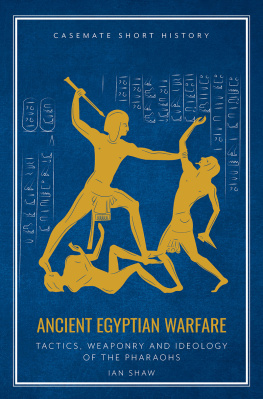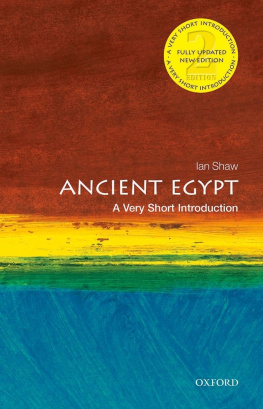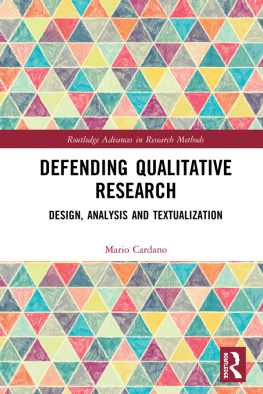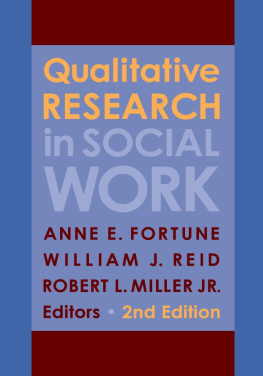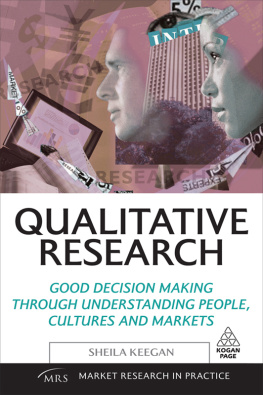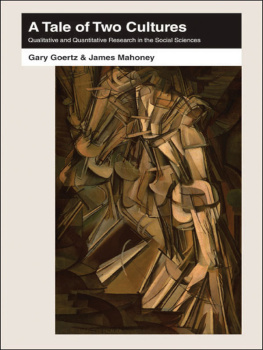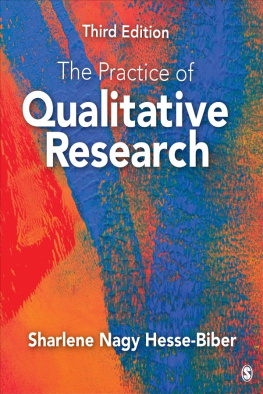Ian Shaw and Sally Holland 2014
First published 2014
Apart from any fair dealing for the purposes of research or private study, or criticism or review, as permitted under the Copyright, Designs and Patents Act, 1988, this publication may be reproduced, stored or transmitted in any form, or by any means, only with the prior permission in writing of the publishers, or in the case of reprographic reproduction, in accordance with the terms of licences issued by the Copyright Licensing Agency. Enquiries concerning reproduction outside those terms should be sent to the publishers.
Library of Congress Control Number: 2013950322
British Library Cataloguing in Publication data
A catalogue record for this book is available from the British Library
ISBN 978-1-4462-5282-6
ISBN 978-1-4462-5287-1 (pbk)
SAGE Publications Ltd
1 Olivers Yard
55 City Road
London EC1Y 1SP
SAGE Publications Inc.
2455 Teller Road
Thousand Oaks, California 91320
SAGE Publications India Pvt Ltd
B 1/I 1 Mohan Cooperative Industrial Area
Mathura Road
New Delhi 110 044
SAGE Publications Asia-Pacific Pte Ltd
3 Church Street
#10-04 Samsung Hub
Singapore 049483
Editor: Katie Metzler
Assistant editor: Lily Mehrbod
Production editor: Ian Antcliff
Copyeditor: Jen Hinchliffe
Proofreader: Chris Bitten
Marketing manager: Camille Richmond
Cover design: Shaun Mercier
Typeset by: C&M Digitals (P) Ltd, Chennai, India
Printed and bound by CPI Group (UK) Ltd, Croydon, CR0 4YY
For
Maria Lau
Jonathan Scourfield
Table of Contents
About the authors
Ian Shaw
I arrived in York (England) as Professor of Social Work in the Spring of 2003, following a long career in the School of Social Sciences at Cardiff University (Wales). I presently hold positions at the University of York and the Department of Sociology and Social Work at Aalborg University, Denmark.
I have written and researched extensively. My next book, body and soul permitting, will be Social Work and Science for Columbia University Press, followed by a four-volume Major Work for SAGE Publications on Social Work Research, with Jeanne Marsh and Mark Hardy. I am involved, alone or with others, at various stages of four research projects: an extended historical project on the relationship of sociology and social work, partly through the Special Collections at the University of Chicago; a historical study of the British Journal of Social Work; a study of the nature of research networks in social work; and a systematic review of practitioner research in adult social care. I hope to develop the notion of sociological social work to the point where I will write a further book.
I co-founded the journal Qualitative Social Work. I envisioned and led to fruition in 2011 the European Conference for Social Work Research, and have worked with others to consolidate that initiative through a new European Social Work Research Association.
Sally Holland
I am a Reader in Social Work in Cardiff Universitys School of Social Sciences. Previously I was a social worker in the field of child and family social work, working in the voluntary and statutory sectors. I have extensive experience of conducting qualitative research projects in social work and have investigated issues related to looked after children, assessment of parenting, family group conferences, child neglect, involving fathers in child protection work, adoption and community safeguarding. I have used a range of qualitative methods to explore these topics, including participative research with children, ethnography, mobile methods, life history interviews and documentary analysis. I facilitate a research advisory group for young people who are care experienced and am deputy chair of my departmental research ethics committee. I am the author of Child and Family Assessment in Social Work Practice (SAGE, 2nd edition, 2011).
Introduction
Doing Qualitative Research in Social Work endeavours to provide a one-stop reference point for all the deliberations, decisions and practices that are entailed in qualitative research in social work. A scan of the contents page will demonstrate how the book covers each interwoven stage of the research process, broader methodological questions, and the fields where the social work context gives qualitative research special character. Perhaps needless to say, some readers will need to look elsewhere for more information on specialist or arcane qualitative interests, or for detailed skills advice on, for example, particular data analysis packages.
The book has faint echoes of an earlier book (Shaw and Gould, 2001) a synergy of authored and invited exemplars. We acknowledge the generosity of Nick Gould and some of the contributors to that book in enabling us to draw here and there on some passages in that book. But Doing Qualitative Research in Social Work is a very different project.
As two authors we have some commonalities and some differences. A shared part of our histories is that we have both spent substantial parts of our careers in the School of Social Sciences in Cardiff University, overlapping by seven years. Cardiffs rich tradition of qualitative research methods has been a clear influence, with references to the work of current and former colleagues such as Delamont, Atkinson, Bloor, Coffey, Pithouse, Scourfield, Renold and Hall appearing throughout the book.
Ian Shaws recent and continuing interests within social work and social science focus on several themes, including the practice/research relationship, understanding the nature of social work as an applied social science in relation to disciplines like sociology, qualitative methodology, practitioner research, developing social work research strategies, the history of social work and research, and technology and professional practice. He co-founded the journal Qualitative Social Work a resource to which this book is much indebted. His general stance is perhaps best captured in an essay reflecting on his back catalogue (Shaw, 2012d).
Sally Holland has a background in child and family social work and much of her methods expertise is practical, arising from experience of conducting qualitative and mixed methods projects using approaches such as ethnography, case studies, life history and participative research. Despite her main expertise and experience being with qualitative research, she is perhaps less critical of other positions and approaches than Ian, and this has led to constructive debates as the book has progressed, particularly when from time to time we make statements such as our position is. Our way of managing this mutual trust and difference has been that all of the chapters were first fully drafted by one of the authors, then critically responded to by the other, before further re-drafting. Just as peer reviewing of journal articles probably leads to a better final product, we hope that this critical collaboration has produced a sounder, more thoughtful and comprehensive book than each of us might have produced individually.







